Song of the Open Road (1944)
By Toronto Film Society on July 29, 2020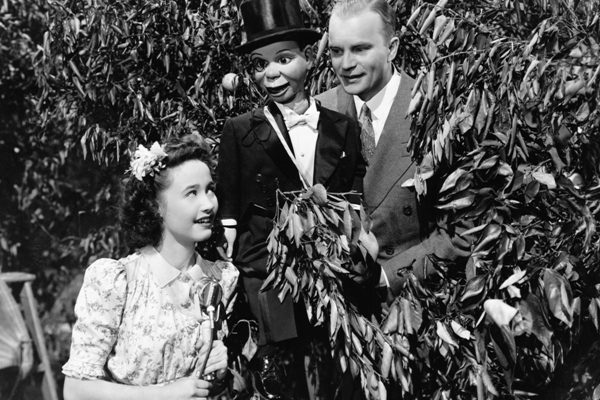
Toronto Film Society presented Song of the Open Road (1944) on Sunday, February 14, 1988 in a double bill with King of Jazz as part of the Season 40 Sunday Afternoon Film Buffs Series “A”, Programme 8.
Production Company: United Artists release of Charles R. Rogers Production. Director: S. Sylvan Simon. Screenplay: Albert Mannheimer, based on a story by Irving Phillips and Edward Verdier. Camera: John W. Boyle. Editor: Truman K. Wood. Production Manager: Val Paul. Assistant to Producer: William J. Fender. Songs: Walter Kent, Kim Gannon.
Cast: Jane Powell (Jane Powell), Edgar Bergen (Edgar Bergen), Charlie McCarthy (Charlie McCarthy), W.C. Fields (W.C. Fields), Bonita Granville (Bonnie), Peggy O’Neill (Peggy), Jackie Moran (Jack), Bill Christy (Bill), Reginald Denny (Director Curtis), Regis Toomey (Connors), Rose Hobart (Mrs. Powell), Sig Arno (Spolo), Irene Tedrow (Miss Casper), Pat Starling (Pat), and the Sammy Kaye Orchestra.
Yet another twist on the “Let’s-have-a-show” theme so familiar in the Mickey Rooney-Judy Garland MGM days, this is a film of both first…and lasts. It marks the film debut of the silver-voiced Jane Powell, and what turned out to be the final appearance of W.C. Fields. The story is set in California, and is woven around the activities of high school groups assisting in the harvesting of crops in a “poor little rich girl” tale. She’s a film star, tired of the constant supervision at the studio. She gets a taste of what “normal” children her age can do, after filming a public service short. She eventually dons a disguise, and walks out of the studio for a fling at freedom. Her enthusiasm generates antagonism from the others in the unit, until her true identity is disclosed. At this point, Jack Moran, the head of the group, discovers the orange crop on his brother’s ranch is in jeopardy due to a shortage of help, and Jane returns to Hollywood to enlist the services of some of her show-biz friends.
There are no hidden messages in this film which presents a pleasant stage on which to bring the talents of Jane Powell to the screen. The New York Times Review described her as “a winsome youngster with a prematurely developed rich soprano voice”. As was the custom at that time, favourite radio stars were brought to the screen, in this case the talents of Edgar Bergen and Charlie McCarthy, W.C. Fields and the Sammy Kaye Orchestra. The production values in the film, or as Bill Everson might say, “a nice little film”, beginning with the opening tracking shots of the bicycle riders, setting the stage for Powell’s first song. In the Variety review of the picture, it is noted that the 14 year old Miss Powell has “a fine voice for the recording channels, and good camera presence”. The review goes on to note that producer Rogers has surrounded her with a combination of veteran performers and some youthful newcomers who emerge as major league talent. Singled out are the Hollywood Canteen Kids and the four young acrobats known as the Lipham Four.
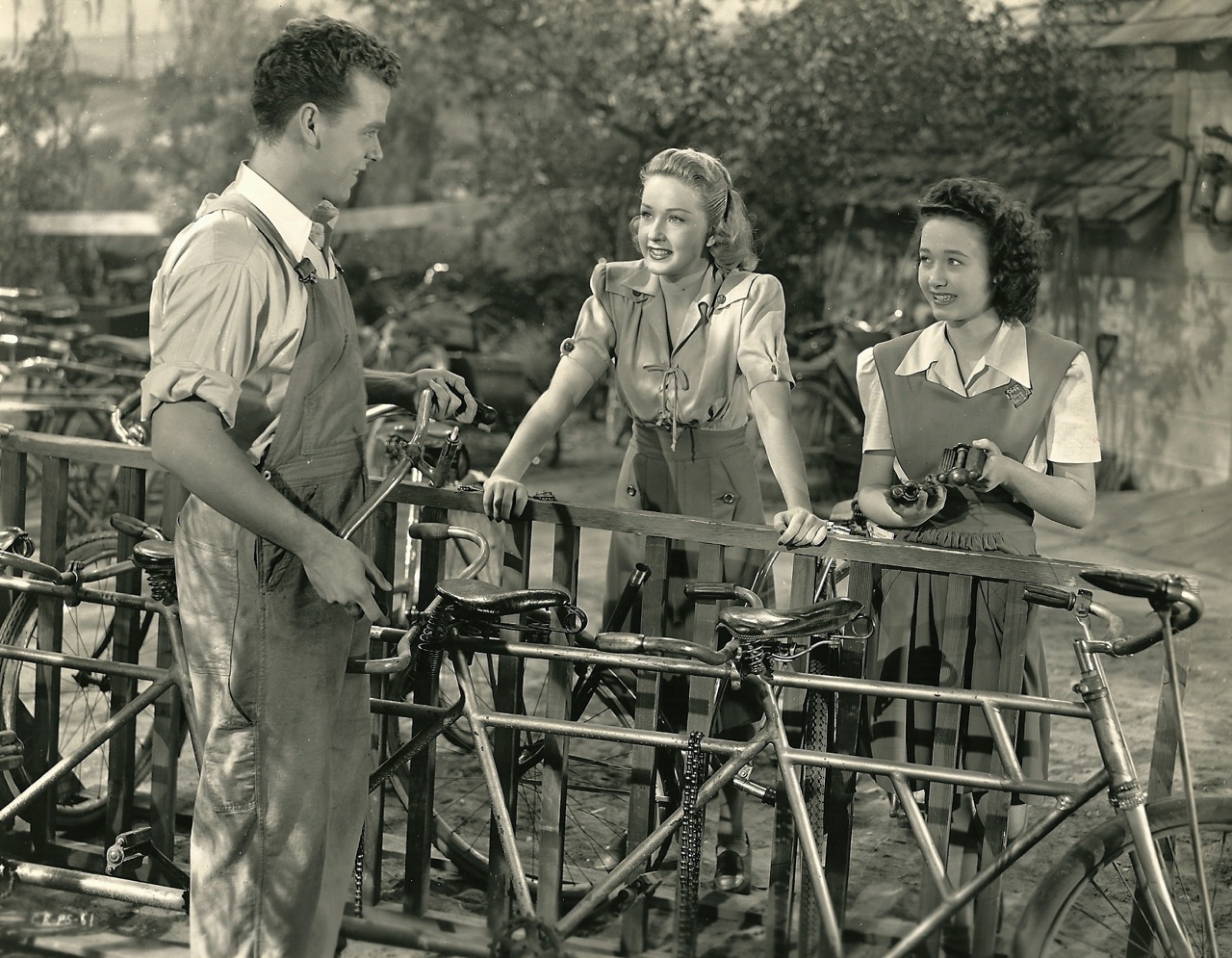
Jane Powell is a native of Portland, Oregon, born Suzanne Bruce in 1929. She had appeared on radio in her very early days, then moved into the film world with today’s production. In addition to her voice, her vivacious blue-eyed blonde appearance and a pleasing personality to match soon vaulted her stock in the film world. A career peak came in 1954 with the feminine lead in the classic MGM musical Seven Brides for Seven Brothers. However, the star declined not long afterwards, when she was unable to shake off the adolescent image even as she neared the age of 30. She retired from the screen in 1958 and turned to television, summer stock and nightclubs.
In 1951, she appeared as the singing-dancing lead opposite Fred Astaire in Royal Wedding. June Allyson originally had been set for the part, but became pregnant. She was replaced by a nervously exhausted Judy Garland, who was unable to keep the commitment, so the role fell to Powell. On her career, Jane is quite straightforward: “I didn’t quit the movies. They quit me. It was mostly because I made musical after musical and I got typecast. I never had a chance to prove I was an actress. I really played myself in all my movies, and when musicals began to lose their popularity, studios didn’t want to take a chance on my unproven talents as an actress. Also, I never had a great director for the few dramas I did”.
One of those dramas was her last picture, Enchanted Island, in 1958. It was based on a Herman Melville’s South Sea Island tale Typee and was a fiasco. Jane says she took the part “because the script was good, and I got to die in the end. But they didn’t stick to the script and they wouldn’t let me die. They said my fans wouldn’t let me”. Instead, her motion picture career died at this point!
Edgar Bergen was born in 1903 and conceived the idea of his famous dummy Charlie McCarthy while still in high school. Charlie cost 35 dollars to construct, but soon helped pay his way through Northwestern University. After college, Bergen joined the vaudeville circuit in the U.S. and Europe, and began a long radio career with Rudy Vallee. By 1937, Bergen won a special Academy Award for the creation of Charlie. His final movie appearance was in The Muppet Movie in 1979, shortly before his death. Charlie was bequeathed to the Smithsonian Institute.
Notes by Bill Sturrup
You may also like...
-
News

Frances Blau
Toronto Film Society | February 27, 2024On Monday, February 26th, 2024, Toronto Film Society lost longtime friend, supporter, and board member Frances Blau. Known for her sense of humour, her love of film, her generosity,...
-
Special Events

Monday Evening Film Noir Double Bill at the Paradise Theatre
Toronto Film Society | July 8, 2024The Toronto Film Society presents a film-noir double feature at one low price! The Window (1949) in a double bill with Black Angel (1946) at the Paradise Theatre on Monday, August...
Programming

Virtual Saturday Night at the Movies
Toronto Film Society | July 20, 2024Toronto Film Society is back in the theatre! However, we’re still pleased to continue to bring you films straight to your home! Beginning Season 73 until now we have...
4-
 Toronto Film Society | July 8, 2024
Toronto Film Society | July 8, 2024
Monday Evening Film Noir Double Bill at the Paradise Theatre
-
 Toronto Film Society | November 6, 2022
Toronto Film Society | November 6, 2022
-
 Toronto Film Society | August 1, 2023
Toronto Film Society | August 1, 2023
Donate to Toronto Film Society – We’re now a Registered Charity!
-
Copyright © 2017 Toronto Film Society.

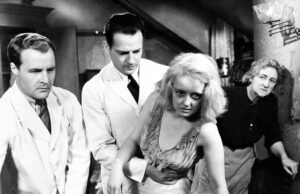
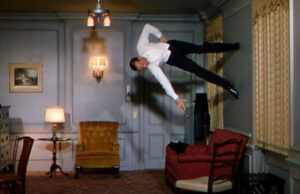
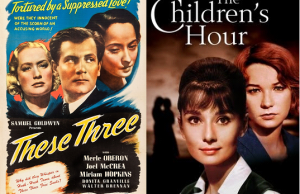
Leave a Reply